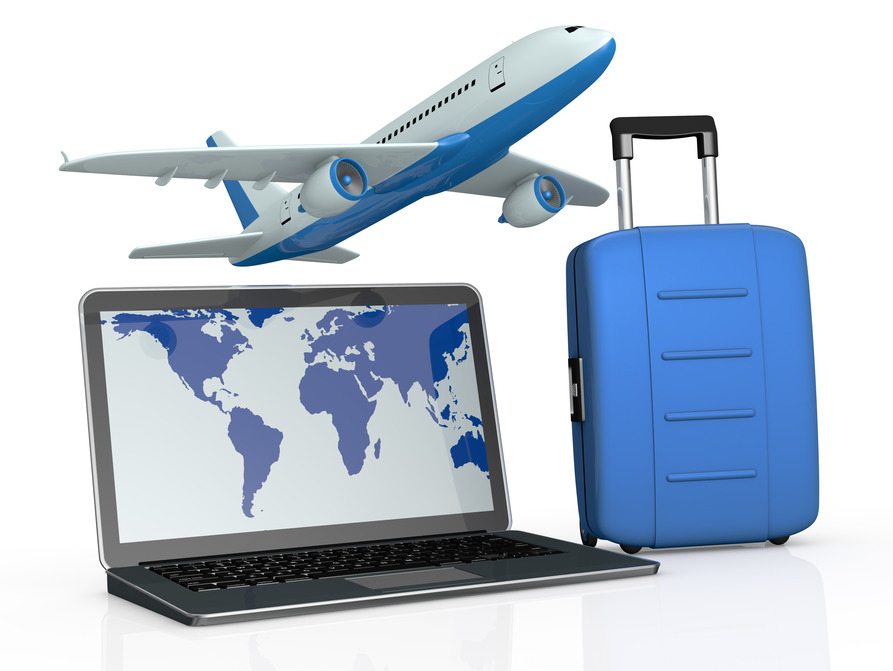Although some traditional travel agents still survive, many travelers use an online travel agency to make all of their reservations in one place. This has the advantage of saving time since travelers are shopping in one place for airfare, hotels, car rentals, and even tours.
People who use these online travel agents are also able to earn rewards from the site that can be redeemed for future travel.
Here are some online travel agency credit credit cards worth considering, along with a review of whether the cards are worthwhile for users:
Orbitz Reward Visa
The Orbitz Reward Visa card from Comenity Capital Bank features 5% back on Orbitz bookings, in addition to the 5% offered by the Orbitz reward program, and the 2% back in Orbitz reward points on all other purchases.
New applicants for this travel agency card also receive a $50 statement credit when they spend $200 within the first 90 days. Cardmembers also receive Gold status in the Orbitz Rewards program, which features priority customer service as well as benefits at select hotels, and there is no annual fee for this card.
Citi’s Expedia+
Citi has recently introduced its Expedia+ Voyager rewards card, which offers points in the travel agency’s own reward program in addition to any rewards offered by airlines and hotel programs.
The new Expedia+ Voyager rewards card features 4x rewards on Expedia purchases, including flights, hotels, activities, and vacation packages. Double rewards are earned at restaurants and for entertainment spending, and a single point is earned per dollar spent elsewhere.
Points are worth about 0.7 cents each as coupons for most hotel stays, but 1.4 cents each for stays at their VIP+ collection of 1,400 hotels around the world.
Cardholders also receive Gold status with the Expedia+ rewards program which offers enhanced customer service, room upgrades and flexible check-in and check-out at +VIP Access hotels, and a 30% increase in points earned on Expedia bookings (not credit card rewards).
Other benefits from this card include a 5,000 point anniversary bonus for cardholders who spend $10,000 on the card within a calendar year, and a $100 annual statement credit toward airline incidentals on qualified airlines, Wi-Fi carriers, or for the Global Entry application fee.
New applicants are being offered 25,000 bonus points when they spend $2,000 on their card within the first three months of opening an account. There is a $95 annual fee for this card, but no foreign transaction fees.
There is also a standard version of this card that only features 3x rewards for spending on Expedia reservations, and 1x elsewhere. This card offers Silver status instead of Gold, and has no $100 annual statement, 5,000 point anniversary bonus, or annual fee.
Travelocity Rewards
Travelocity is another major online travel agency that offers its own credit card. The Travelocity Rewards American Express card from Barclaycard offers new cardholders 5,000 points after making their first purchase, and another 5,000 points after spending $1,000 on qualifying transactions within 90 days of account opening.
Cardholders receive three points per dollar spent on eligible Travelocity purchases, and one point per dollar on all other transactions. These points can be used for statement credits toward Travelocity purchases, with 10,000 points earning a $100 statement credit, and 20,000 points earning a $400 statement credit. There is no annual fee for this card.
Price Rewards Visa
The Priceline Rewards Visa card from Barclaycard also offers new applicants 5,000 bonus points after making their first purchase, and another 5,000 points after spending $1,000 within 90 days of account opening.
Reward points are worth 1 cent each in the form of a $100 statement credit, for 10,000 points. Cardholders also earn five points per dollar spent at Travelocity, and 1 cent per dollar on all other purchases. There is no annual fee.
Are travel agency cards worth it?
There are two travel reward cards available that offer double miles for all purchases, and each mile being worth 1 cent toward statement credits. These cards are the One Venture Rewards card and the Barclaycard Arrival Plus. Wth either of these cards, all purchases return 2% back as statement credits.
This rate of return is much better than these travel agency credit cards when used for regular spending, but generally inferior when used to purchase travel reservations through their respective online sites.
For instance, the Expedia cards only earn one point per dollar spent on most purchases and those points are worth just .7 cents at most hotels, and 1.4 cents at their +VIP collection.
General spending with the Orbitz and Priceline cards offers rewards equivalent to 1 cent per dollar spent. On the other hand, the Travelocity card earns points that are worth 2 cents each, so long as they are redeemed in increments of at least 20,000.
Perks make travel agency card worthwhile
What makes the Expedia+ Voyager card worth considering are all of its other perks. Travelers who like using an online travel agency may appreciate the dedicated customer service agents and the other perks offered to those with Gold status.
This card also features an EMV smart chip and no foreign transaction fees, both of which are vital feature for international travelers.
One strategy might be to have a Capital One Venture Rewards card and the Barclaycard Arrival Plus card for use on most purchases, and an Expedia Voyager+ card for making travel reservations. In this way, these two cards would offer more points in combination than either might offer by itself.
The concept of a travel agency will be with us for a long time, and it will always be up to credit card users to ensure that they receive the maximum rewards when using these services.




